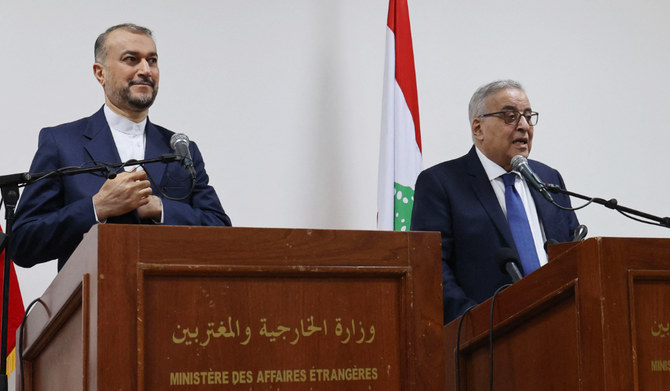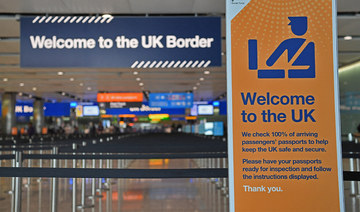BEIRUT: Iranian Foreign Minister Hossein Amir-Abdollahian has praised the dialogue taking place between Syria and Turkiye, and the meetings of the two nations’ leaders.
“We believe that it will reflect positively on the interests of both countries and it is the best way to find a solution for the Syrian-Turkish relations issue,” he said.
“The matter can be pursued within the framework of the Astana talks, while giving the Syrian presence a role in this dialogue.”
Amir-Abdollahian was speaking in Beirut after talks with Lebanon’s Caretaker Prime Minister Najib Mikati, Parliament Speaker Nabih Berri and his Lebanese counterpart Abdullah Bou Habib.
Iran “will always remain a faithful friend of Lebanon,” he added.
BACKGROUND
Iranian Foreign Minister Amir-Abdollahian held talks in Beirut with Lebanon’s Caretaker Prime Minister Najib Mikati, Parliament Speaker Nabih Berri and his Lebanese counterpart Abdullah Bou Habib.
On whether Hezbollah can facilitate the presidential election process, Amir-Abdollahian said: “We do not interfere, in any way, in internal Lebanese affairs.
“We are certain that the Lebanese political parties have the awareness, foresight and expertise to end the presidential vacuum and elect a new president as soon as possible.”
He said positive steps were being taken to activate bilateral relations with Lebanon, and reiterated Iran’s offer “to rebuild and rehabilitate Lebanon’s power plants, as well as build new ones, based on an agreement that can be reached with the Lebanese government.”
Amir-Abdollahian added: “Iran explicitly supports the Lebanese resistance and the Palestinian resistance against any Israeli attacks targeting these two countries.”
According to his press office, Mikati said during his meeting with the Iranian minister that “the circumstances in Lebanon are difficult, but we are working on managing the situation and we have the confidence and the will to overcome this ordeal.”
On Iran’s offer to donate fuel to Lebanon, Bou Habib said that “we are facing many obstacles, a political disagreement in Lebanon and external pressure, but we are still trying to get the donation, and we agreed with our Iranian brothers to keep pursuing this attempt.”
He said he told his Iranian counterpart that Lebanon was keen to preserve Iran’s stability and was fundamentally opposed to any country interfering in the affairs of another.
Amir-Abdollahian also met with Hezbollah Secretary-General Hassan Nasrallah.
In a statement, Hezbollah said that “the meeting discussed political developments in Lebanon, Palestine and the region, especially the options and threats stemming from the formation of a corrupt and extremist Israeli government, and the status of the resistance movements and axis in the face of the regional and international developments and events.”
Also on Friday, the Lebanese army said its troops shot at an Israeli drone that crossed into Lebanon’s airspace on the outskirts of the southern town of Houla and Wadi Hounin, south of the Litani River.
The army urged political forces “to assume their responsibilities to achieve national interest, accelerate the process of electing a president and carry out all relevant constitutional duties in order to meet the Lebanese people’s aspirations, achieve political stability and carry out the economic reforms needed to overcome the significant difficulties facing Lebanon in recent years.”
Meanwhile, Maronite Patriarch Bechara Al-Rahi continued his visit to the UK, where earlier this week he visited the House of Commons and took part in a panel discussion on Lebanon’s political situation and difficult social conditions.
At a press conference he stressed the need to “shield Lebanon from regional and international conflicts, while preserving its friendly relations with Arab and foreign countries.”
He also called for the speedy election of a new president and appealed to nations, including the UK, “to play the required role through their commitment to support Lebanon before the international community and the United Nations.”




























